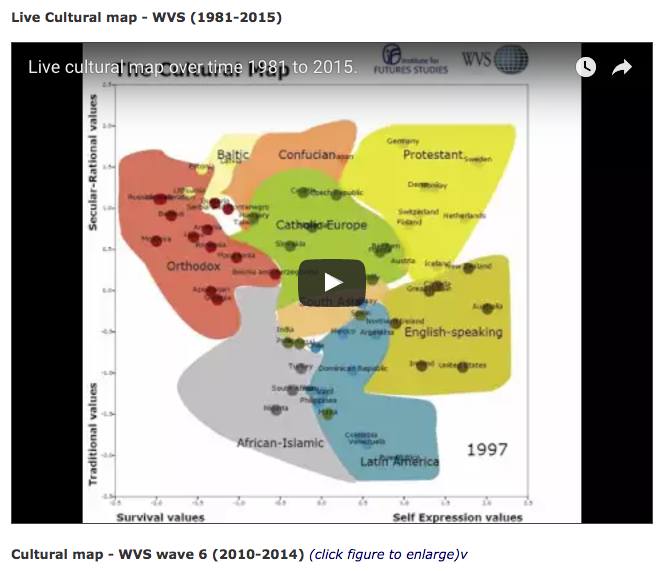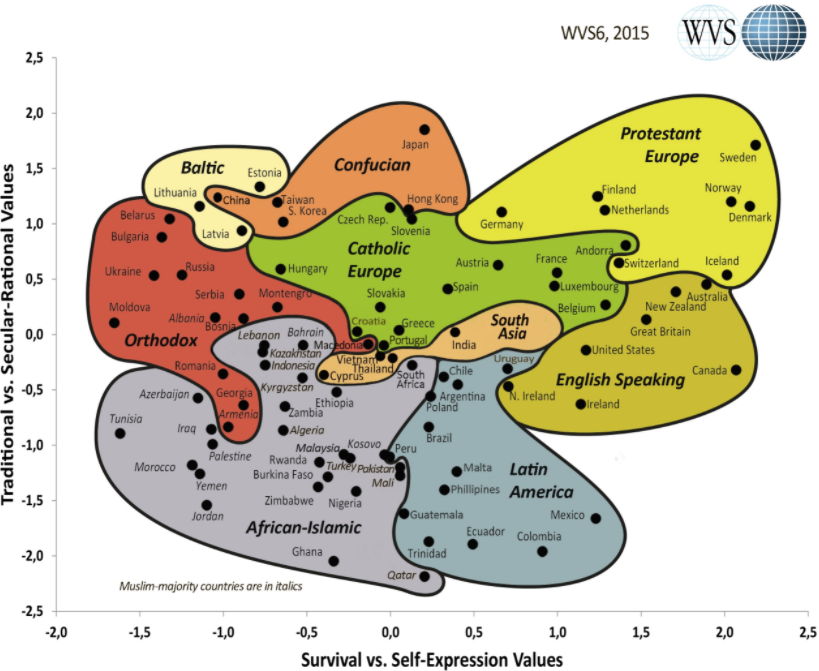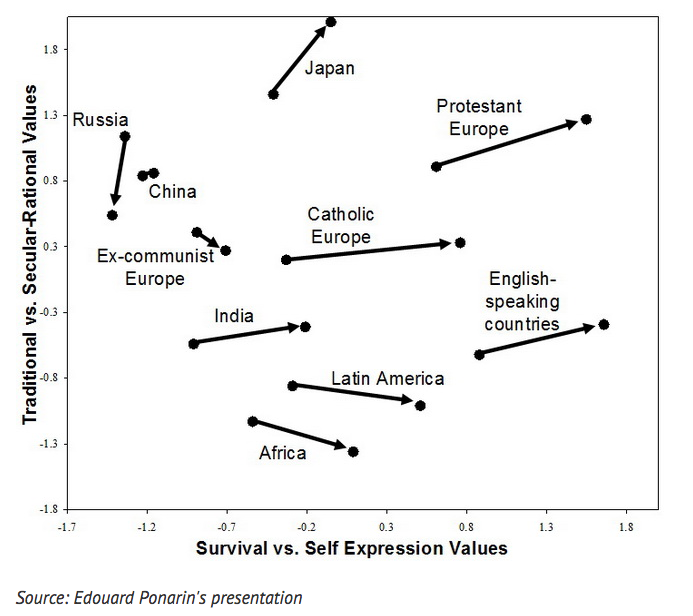The programme “Whats Next” that ran in on TVNZ over 5 nights recently touched upon the importance of values in what happens in everyday life, in what we think about the past, and the present and the future. Values drive action or inaction on the issues that matter most, and even in those that seem quite trivial. The programme received mixed reviews but probably came out more on the positive side than the negative. A good overall review appeared in the New Zealand Herald.
One of the best summaries of what happened, the value of it, and on what the results may be was an editorial in the Wanganui Chronicle. Mark Dawson saw the programme as, possibly, part of a bloodless revolution. Dawson writes:
 “The programme was bold and ambitious, and so were the ideas it threw up with presenters John Campbell and Nigel Latta, imbued with revolutionary fervour, leading a bunch of – yes – “futurists” in shaping the kind of country they wanted. Economic equality, the end of poverty, shareholding workers and technological innovation were all laudable landmarks along the route.”
“The programme was bold and ambitious, and so were the ideas it threw up with presenters John Campbell and Nigel Latta, imbued with revolutionary fervour, leading a bunch of – yes – “futurists” in shaping the kind of country they wanted. Economic equality, the end of poverty, shareholding workers and technological innovation were all laudable landmarks along the route.”
He goes on to note that:
“Anti-establishment fever seems to be everywhere; the often-absent youth vote is making itself felt; hope and a vision for the future are outstripping the “we-stand-on-our-record” nod to the past.” After reviewing some of the outcomes of other recent elections around the world he asks “Will this epidemic of political disorderliness infect the New Zealand election? Do we have a party leader with enough fire in their belly to stand aside of the mainstream and rally the young and the disaffected to their cause? Or is it “steady as she goes, New Zealand”?
Interesting stuff in the light of Metiria Turei’s decision to come clean on the plight of beneficiaries by explaining her benefit fraud in the past. She states on her web page that her passion is: …
“…building a more equitable society; reducing unemployment, ending child poverty, ensuring all Kiwis live in warm, healthy homes and protecting our rivers and oceans for future generations.”
In a recent speech in Christchurch she implied that her confession was an out flow from the fact that she …
“… told the country that we would be a party that spoke truth to power, that we would tell the truth about what is happening for our families and our environment and we would not be silenced by claims that we should somehow be more moderate or more middle of the road…”
One commentator, Verity Johnson a young journalist, TV Presenter and Comedian wrote in a Newshub article …
“So Metiria Turei didn’t tell WINZ that she had flatmates. As a taxpayer, I don’t feel at all ripped off by this. In fact, it’s the first time ever I’ve felt inspired to vote. Before this, I was approaching voting in the general election like I do my tax return. It’s painful, dull and soul-crushingly uninspiring. I shouldn’t hate voting. I’m 22, well-educated and starry-eyed enough to be filled with political fire. But I do because I’ve never felt inspired by politicians. I’ve never been impressed with their honesty, integrity, or the policies that are firmly designed to appeal to the middle-class, white, 55-year-old, house-owning male voter. But when Turei came forward and said, …
1) she misled WINZ,
2) that she was scared about admitting it but felt she had a duty to do so, and
3) that the system was broken and she was the proof, it was the first time I’d properly respected a politician.
It smacks of integrity. I know that is counterintuitive because she technically lied. But I still think this move is overwhelmingly honest. Her whole campaign is that the benefits aren’t enough to live on. You know she believes this because she clearly has been there and experienced it. She’s also prepared to fight for this moral principle by staking her political career on it. “

Verity Johnson with Paul Henry in after signing her TV presenter contract in 2016
The over whelming reaction to Turei’s announcement from older writers has been negative. But here we have a young journalist saying she thinks what Turei has done and said shows integrity and honesty – speaking truth to power. It has inspired her to get interesting in politics and want to vote.
Is Turei the leader capable of rallying the young and poor? Observers have noted for years that the turn out of the young and the poor at elections is abysmal. The fact that the Green’s rating in the latest Colmar-Brunton poll has gone up by 4% may be an indication that the answer is yes?
In my first post on Changing Values over Time and Space, I noted that the most recent round of the World Values Survey (WVS) data from New Zealand found that under 29s voted 50 to 31 for the environment over economic growth. By comparison, 50 and overs voted 45 to 37 for economic growth over the environment. In my second post on the values change issue I presented a graph entitled The Forces Shaping Values Change. This chart focused on different values positions of the generations in selected countries in 2005. It showed in some countries like India and Nigeria the differences between generations are quite small. On the other hand in countries like Germany, Spain, the United Kingdom, France and Sweden there are large variations in values between older and younger people. These countries are all culturally relatively similar to New Zealand. The graph makes it clear that in Western countries like NZ younger people are much more “progressive” in their values stance compared with the elder generations. That is, they are more attached to secular-rational values which place less emphasis on religion, traditional family values and authority and where divorce, abortion, euthanasia and suicide are seen as relatively acceptable. They are also much more supportive of self-expression values such as environmental protection, growing tolerance of foreigners, gays and lesbians and gender equality, and rising demands for participation in decision-making in economic and political life.
Verity Johnson illustrates the point. Most of the comment about Turei’s actions from middle and senior age opinion writers have been quite judgemental – more typical of a traditional society. Johnson, however, while knowing what Turei did was technical wrong, admires and is inspired by her ‘telling as it is’ and trying to fix a broken system. Typical of the secular-rational and self-expression ends of the two axises of the Inglehart and Welzel graph.
In relation to a response to my last post, Hazel Owen asked: ” What would you see as the main benefits of unpacking this data?” An important question that I will now attempt to answer briefly.
Firstly, because I am an ex-social sciences teacher I think that trying to understand our society and the world we live in is incredibly important. I believe that understanding how values work in society is an important part of this. The work on how values change through time and space helps secondary students move beyond the inculcation realm that we often get stuck in, to the counter-socialisation dimension. Looking at differences in generational values or in contrasting cultures is part of understanding how values differ in different contexts and how they influence us.
Secondly, applying the insights from the WVS findings to a current controversy we can see something of how different values positions are playing out. With the long and rich list of opinion articles about the Turei confession and its aftermath around at the moment teachers and senior pupils could have some lively dialogue! A bonus might be that an in-depth look at the issue might well spark the kind of interesting way into politics and voting Johnson experienced. The question raised by Dawson – is there a bloodless revolution going on could be another interesting angle to take.
Both of the reasons given above will, in my opinion, advance the vision of the NZ Curriculum to foster confident, connected, active, lifelong learners!




 University in St. Petersburg. He plotted this graph to show that Russian values since the 1990s have moved in a very different direction from most of the rest of the world! He calls the change a “slide into greed and suspicion” while most of the rest of the world has become more positive in their values and beliefs.
University in St. Petersburg. He plotted this graph to show that Russian values since the 1990s have moved in a very different direction from most of the rest of the world! He calls the change a “slide into greed and suspicion” while most of the rest of the world has become more positive in their values and beliefs. use of WVS data …
use of WVS data …